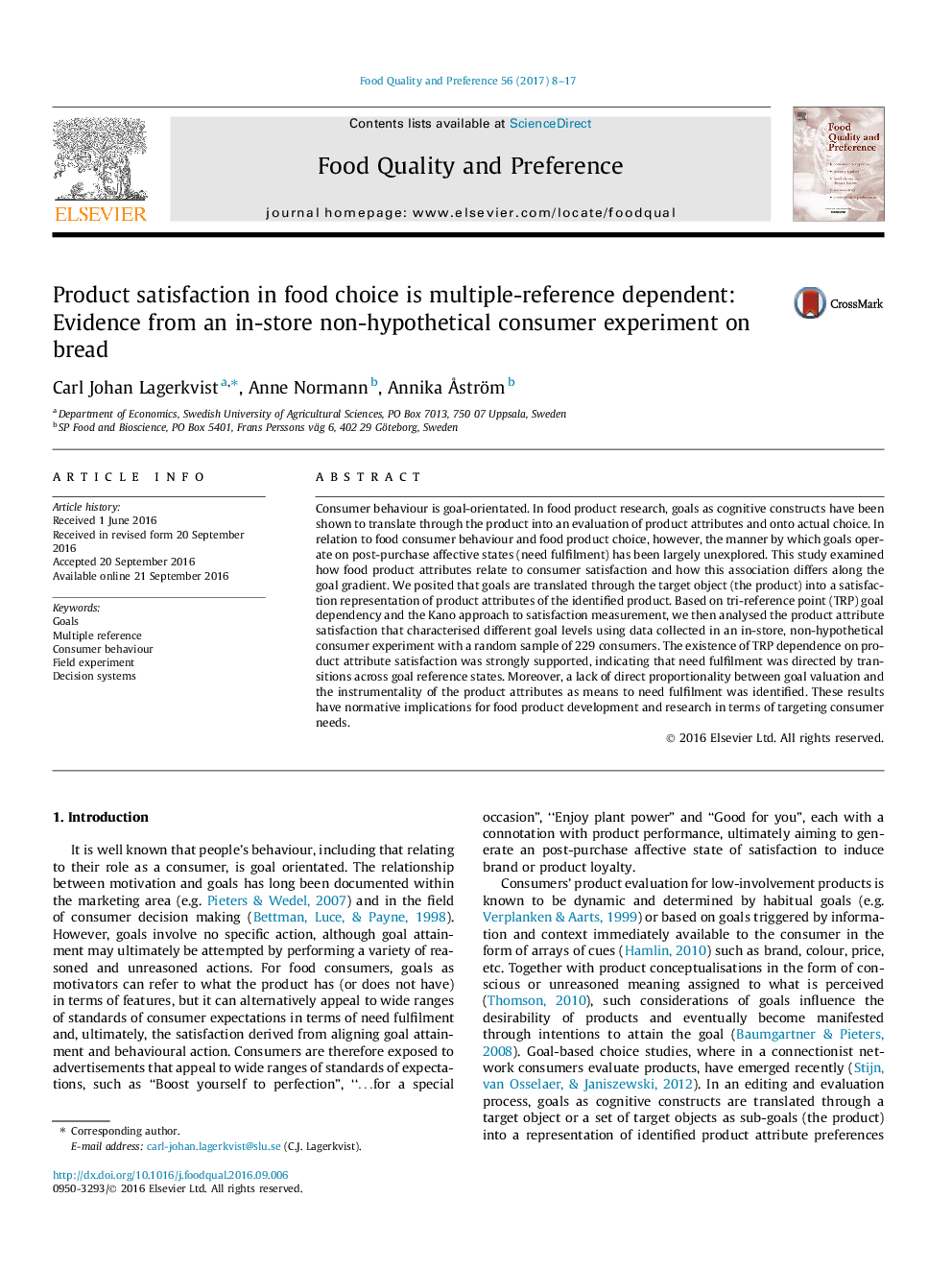| کد مقاله | کد نشریه | سال انتشار | مقاله انگلیسی | نسخه تمام متن |
|---|---|---|---|---|
| 4316823 | 1411890 | 2017 | 10 صفحه PDF | دانلود رایگان |
• An in-store, non-hypothetical consumer experiment was used to obtain data.
• The Kano approach and gap analysis were used to measure satisfaction.
• Food consumer product attribute satisfaction is multiple-reference goal-dependent.
• Transitions along the goal gradient induce changes in attribute satisfaction.
• The instrumentality of product attributes is non-proportional along the goal gradient.
Consumer behaviour is goal-orientated. In food product research, goals as cognitive constructs have been shown to translate through the product into an evaluation of product attributes and onto actual choice. In relation to food consumer behaviour and food product choice, however, the manner by which goals operate on post-purchase affective states (need fulfilment) has been largely unexplored. This study examined how food product attributes relate to consumer satisfaction and how this association differs along the goal gradient. We posited that goals are translated through the target object (the product) into a satisfaction representation of product attributes of the identified product. Based on tri-reference point (TRP) goal dependency and the Kano approach to satisfaction measurement, we then analysed the product attribute satisfaction that characterised different goal levels using data collected in an in-store, non-hypothetical consumer experiment with a random sample of 229 consumers. The existence of TRP dependence on product attribute satisfaction was strongly supported, indicating that need fulfilment was directed by transitions across goal reference states. Moreover, a lack of direct proportionality between goal valuation and the instrumentality of the product attributes as means to need fulfilment was identified. These results have normative implications for food product development and research in terms of targeting consumer needs.
Journal: Food Quality and Preference - Volume 56, Part A, March 2017, Pages 8–17
